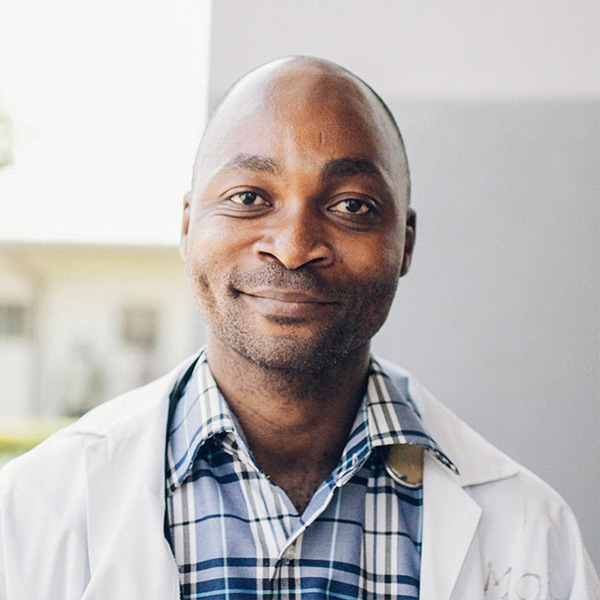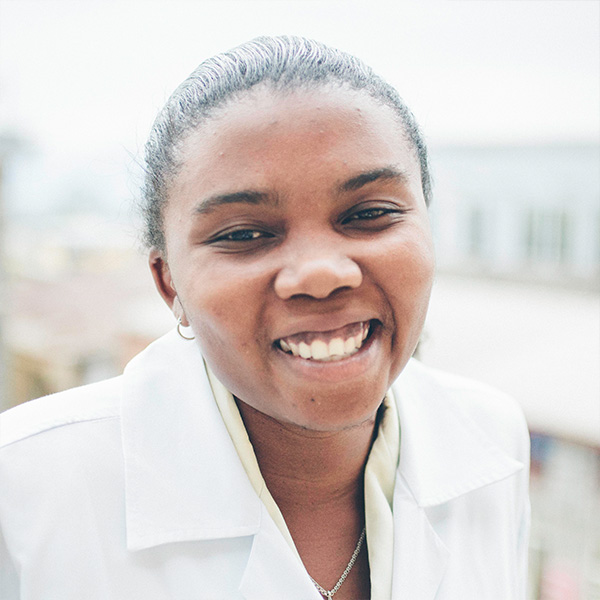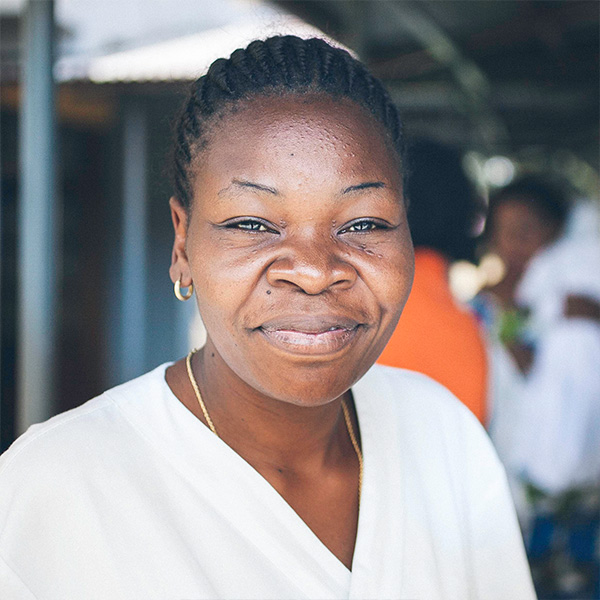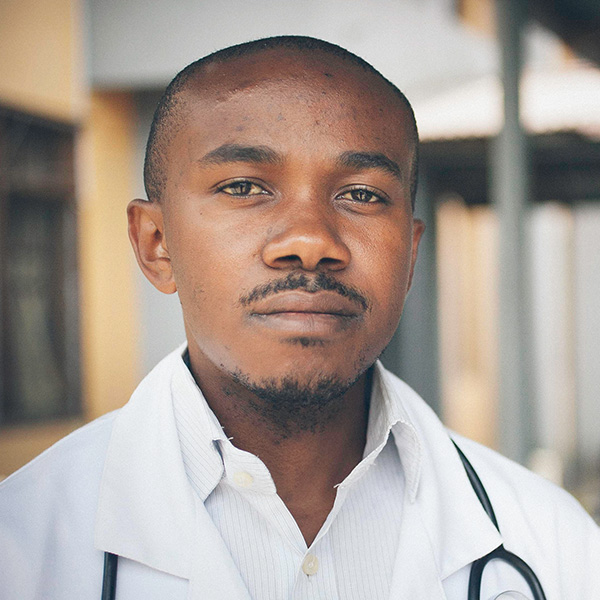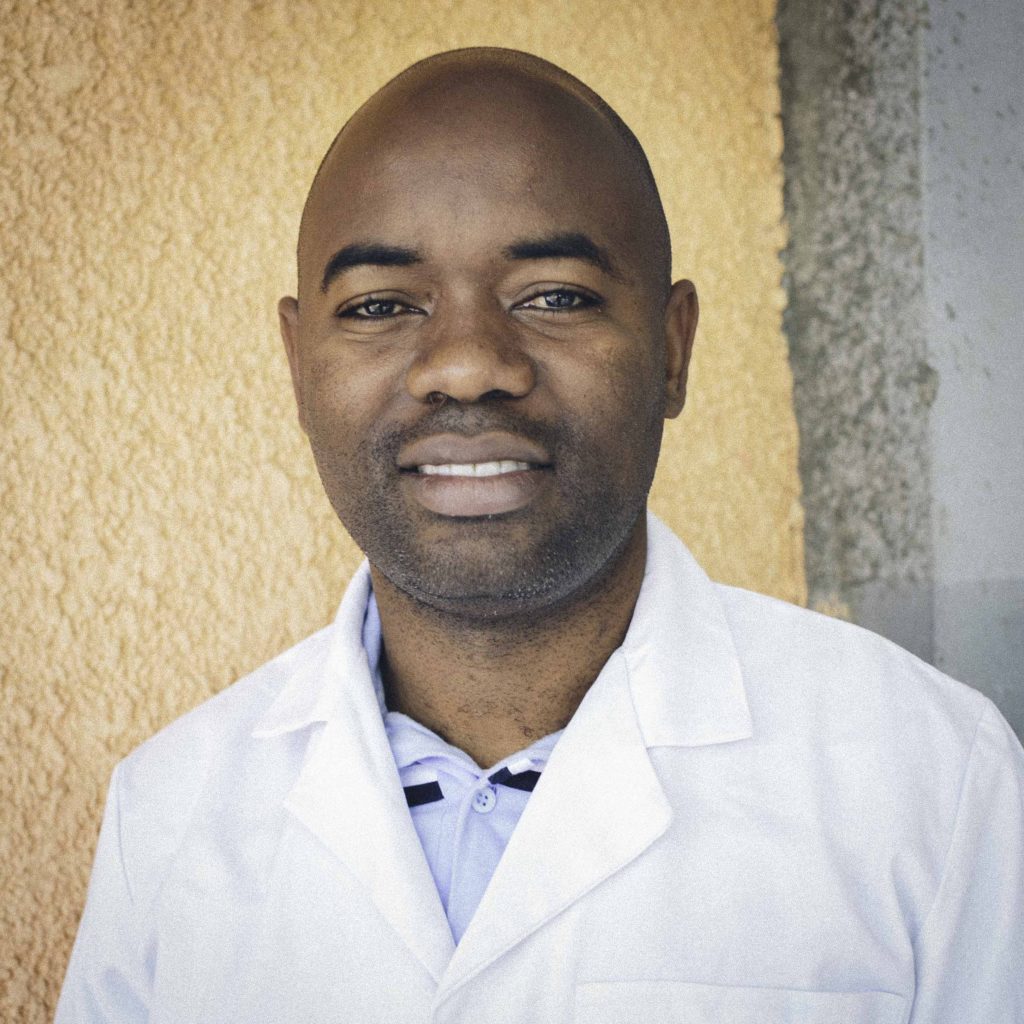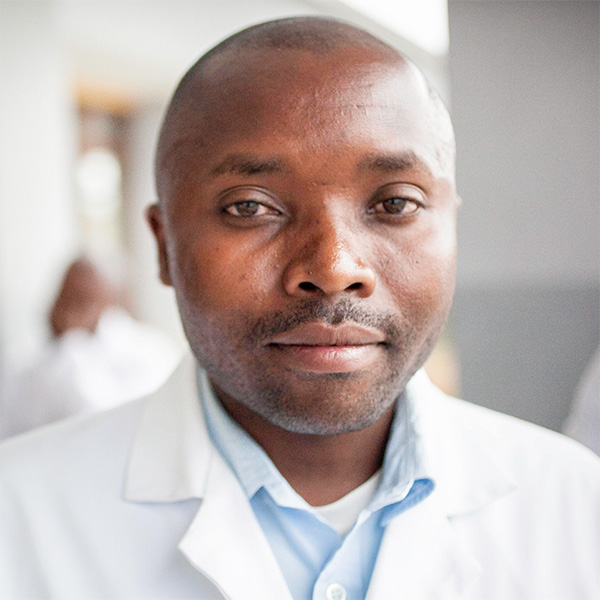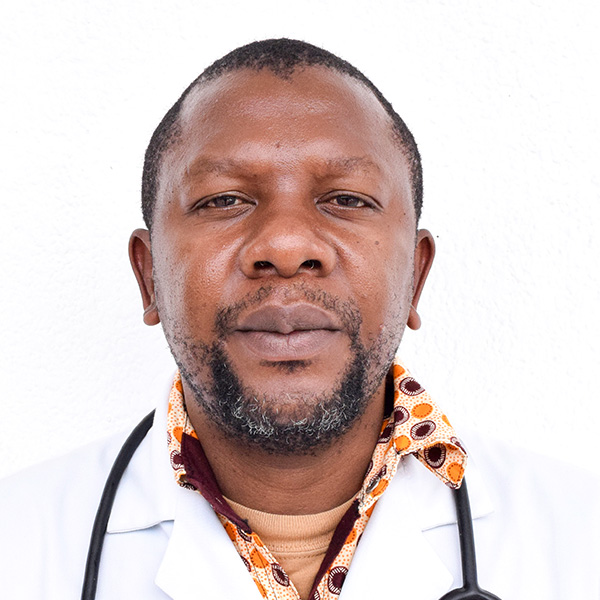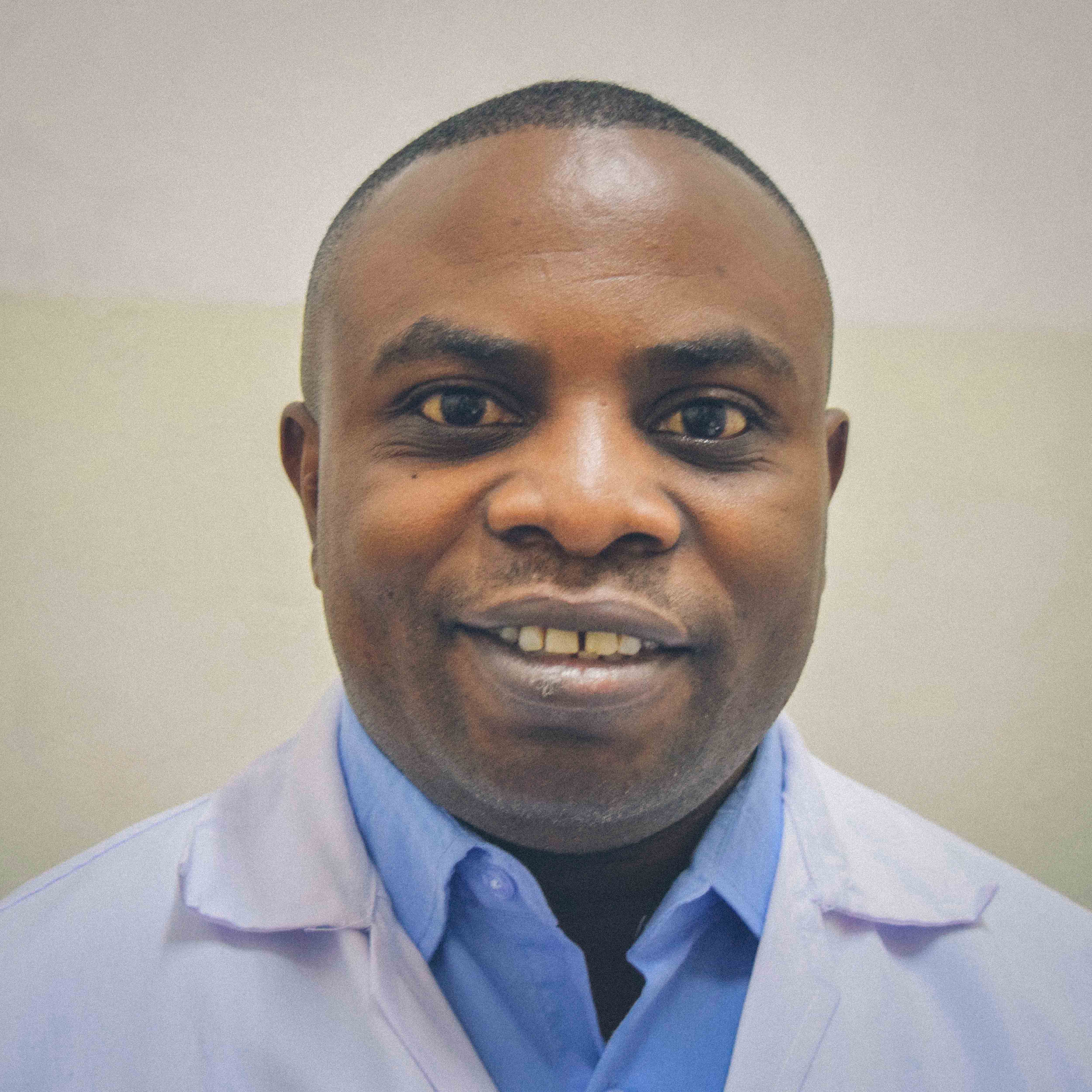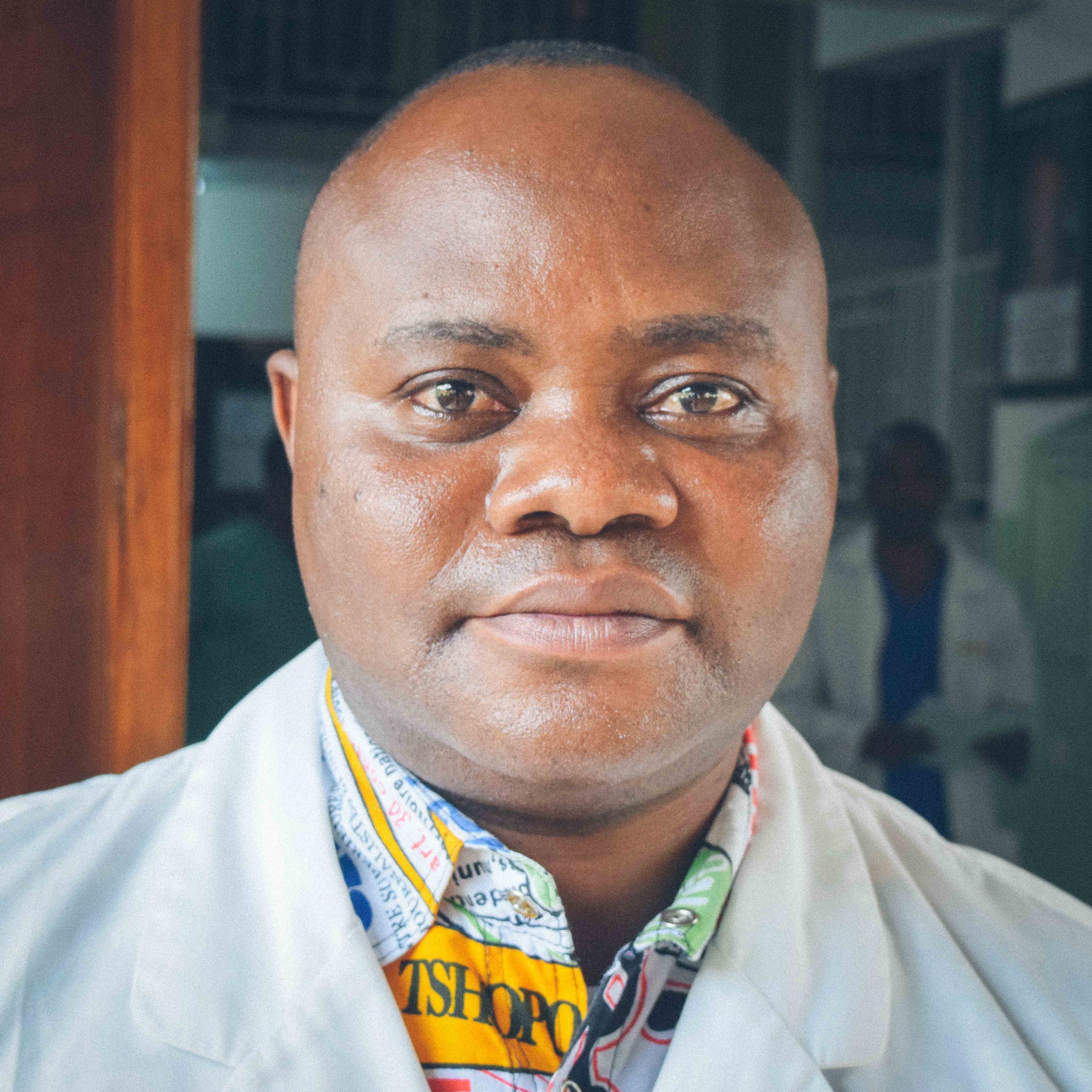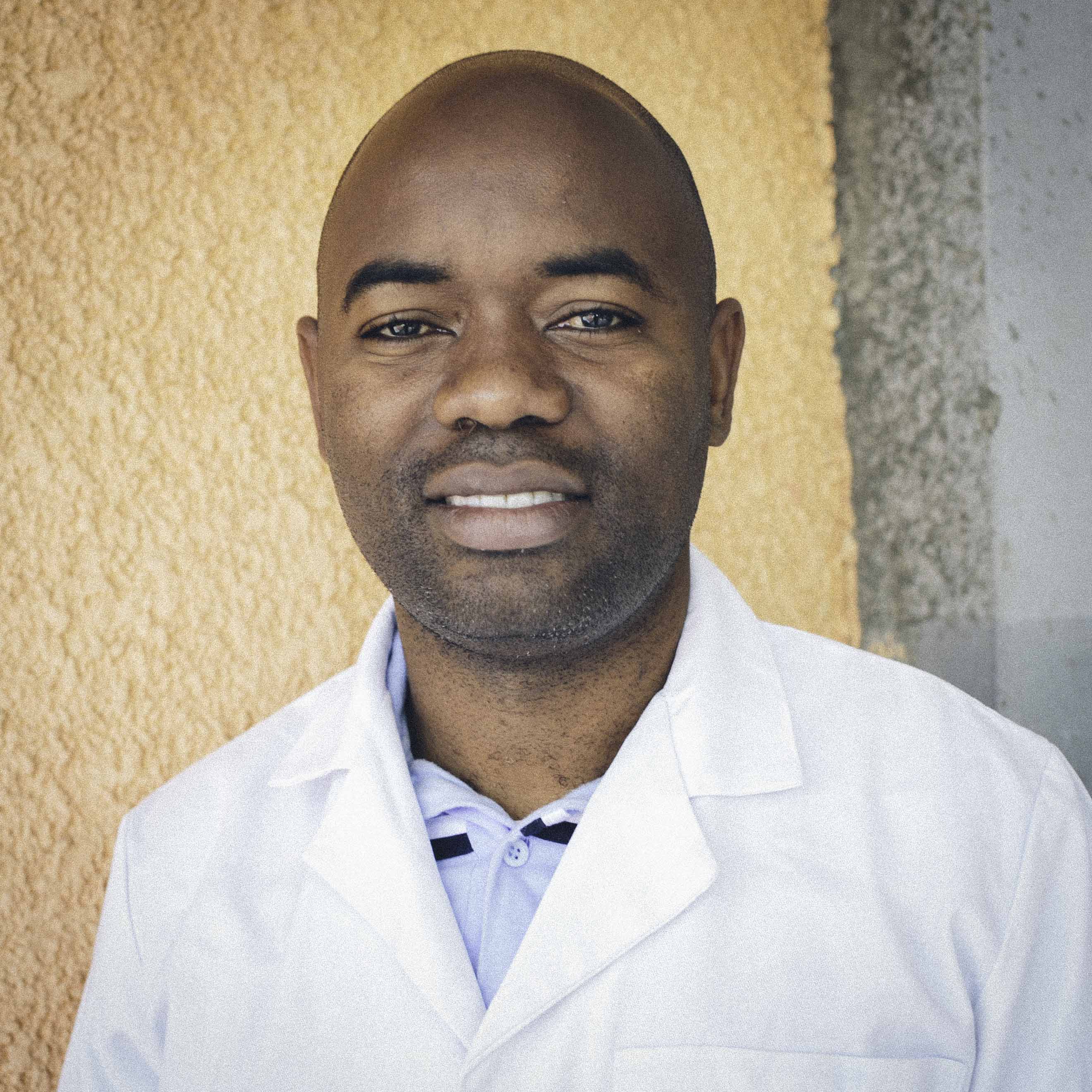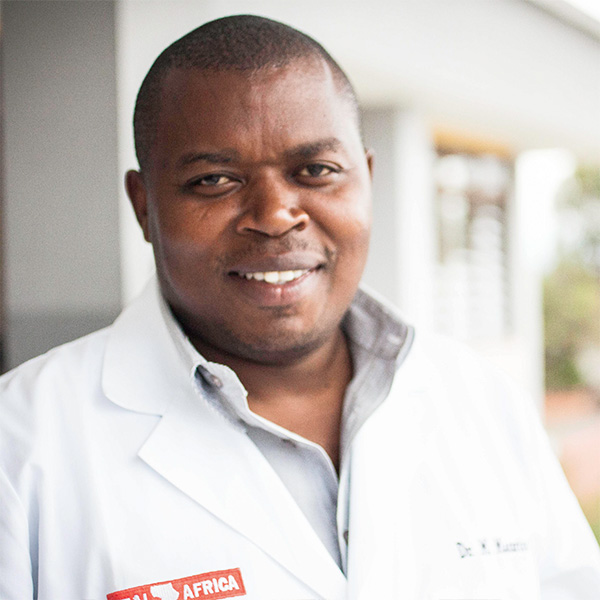Training
We're more than a tertiary hospital.
HEAL Africa supports community-based health care by training health care professionals and participating in research focused on the needs of the region.
We also ensure that training is available for technicians to use and maintain a variety of instruments and machines that serve the hospital.
Verifiable statistics in DRC are difficult to obtain, however, it is reliably estimated that there is less than one physician for every 10,000 people and the ratio of surgeons is one for every 1 million people. The current medical and surgical workforce does not meet the health crisis in DRC. We address this problem by intentionally training health care professionals and conducting medical research.
HEAL Africa also goes to the rural health centers to train nurses, many of whom have received only basic first aid training. Training is often given in the rural areas to physicians who assist HEAL Africa physicians during outreach projects.
HEAL Africa places great focus on training physicians in Family Medicine. The training prepares candidates to face the demands of rural primary health care. The curriculum is rigorous. It features instruction and supervised rotations in the following areas: pediatrics, obstetrics/gynecology, general surgery, orthopedics, internal medicine, ophthalmology, dentistry, public health and management. Christian mentoring is an important component of the residency program. Each resident is taught to follow the example of Jesus Christ who treated all without regard to race, tribe, social status, religious affiliation, or gender. Residents are encouraged to provide healing that addresses the physical, emotional, social, and spiritual needs of the patient.
In 2016, HEAL Africa began training physicians in surgery through a partnership with COSECSA.

Current Areas OF Training
- COSECSA (College of Surgeons of East, Central and South Africa)
- Family Medicine
- Orthopedic Officer School
- Chaplaincy School
- Specialization Program of Resident & Generalist Doctors
- Neonatal Nurse Training
- Scientific Research
- Continuing Education (for medical, paramedical and administration)

CONTINUING MEDICAL EDUCATION
HEAL Africa helps practicing physicians remain current with medical advances. New treatment and new regimens offer new options for patient treatment. HEAL Africa hosts lectures given by international visiting doctors for the medical community in Goma. Medical teams recruited individually, by churches or institutions from across North America, Europe, and Australia volunteer at HEAL Africa, teaching theory and practice in addition to working with Congolese doctors in the wards.
Meet Our Residents
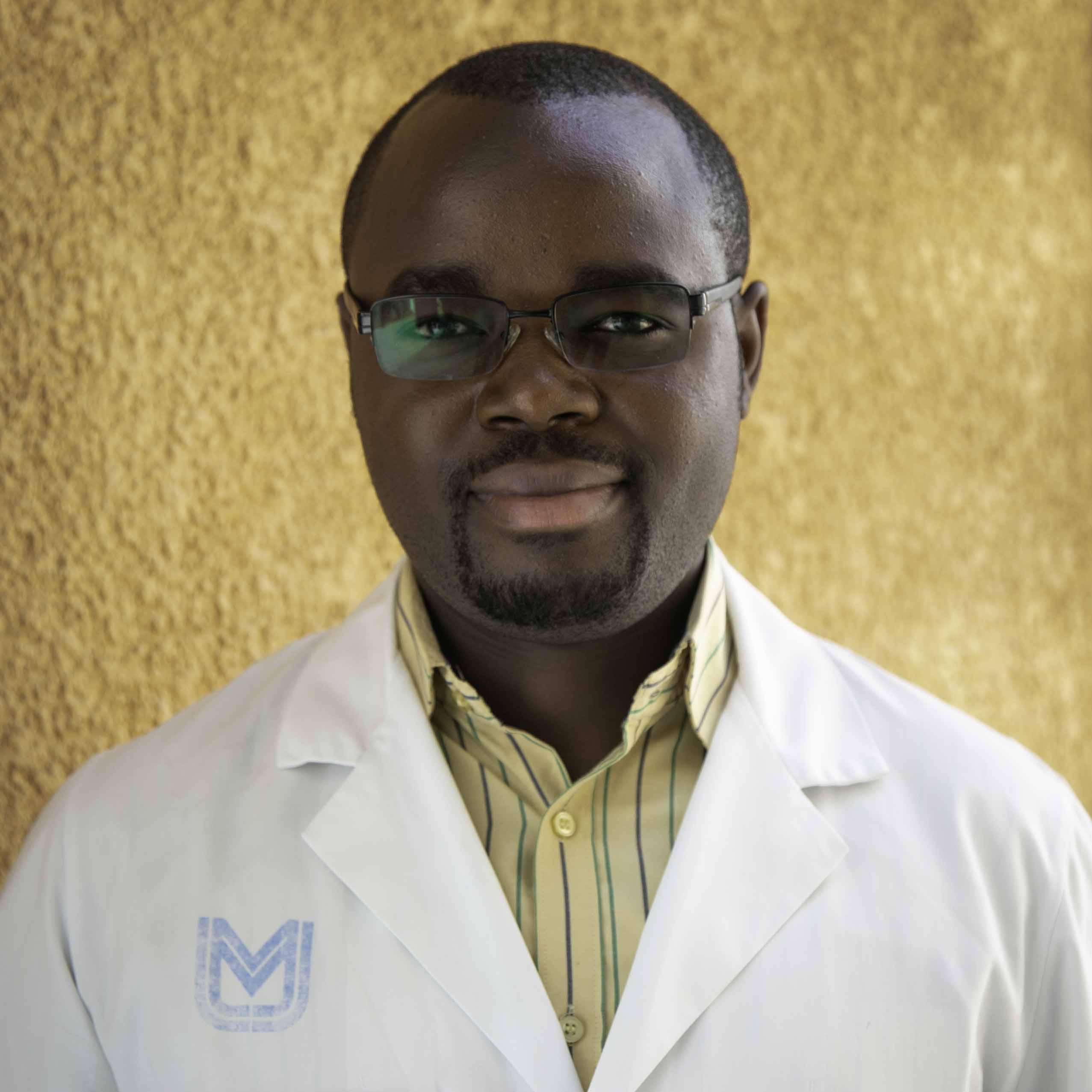 Jacques FADHILI BAKE
Jacques FADHILI BAKE

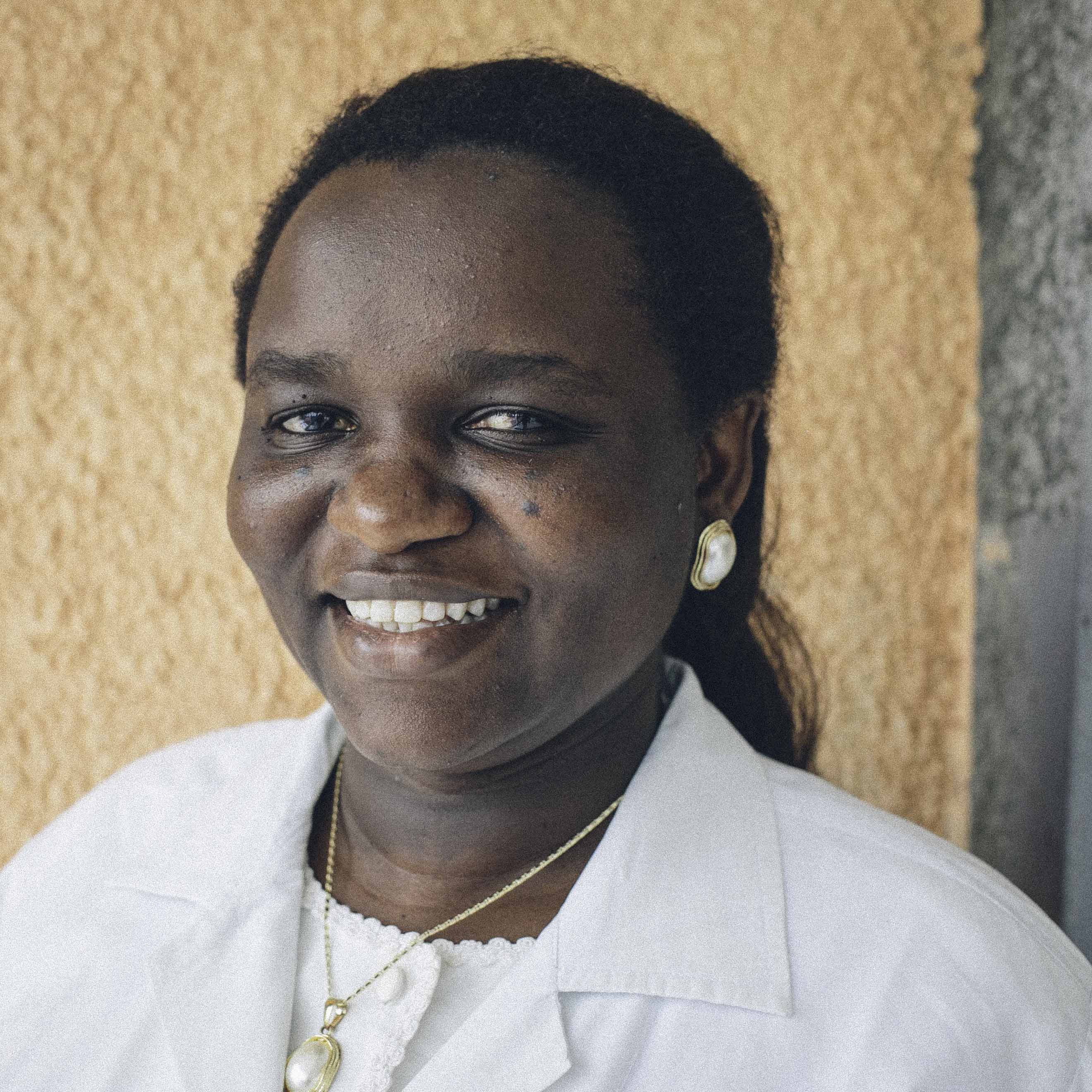 Sylvie KAHINDO BEMBELEZA
Sylvie KAHINDO BEMBELEZA

Sylvie is grateful to be surrounded by friends and family who want the best for her. “My husband, he wants to see me go far. One day I would like to open a clinic and have my own practice. I also want to be the best mother and the best family physician. And to be a really good cook.” Sylvie had known about HEAL Africa for some time, having worked with Dr. Masoda, who supervises the Family Medicine program at HEAL Africa. Eight years ago they worked on a memoir about pneumonia in pediatrics. She has since worked in other hospitals, but when a spot within the Family Medicine program opened up, she jumped at the opportunity and took the exam. Pediatrics is Sylvie’s passion. If not a doctor, she would be an Economist.
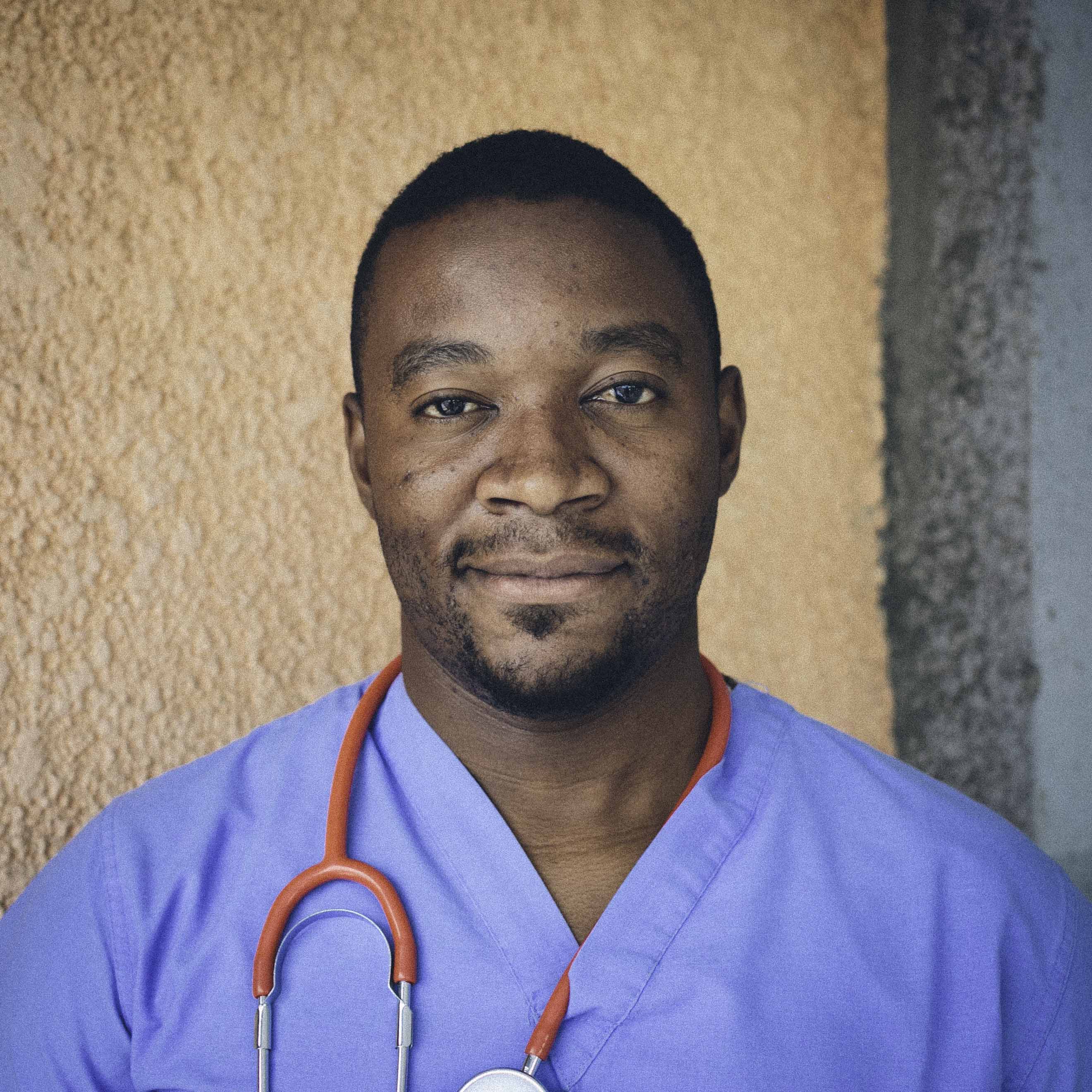 Claude BONDEKWE
Claude BONDEKWE

Claude was born in Moga, DRC, but grew up in Kisangani and Bukavu. He is married with one child. Being a doctor has always been his dream as a child, but was determined to pursue it after seeing a friend die during the war in 1996. He joined the Family Medicine program because he knew it would be the best way to reach the DRC’s broader population. Claude’s motivation to succeed comes from his faith in Christ and his father, who dedicated his life helping others. If he could dedicate his life to one cause, it would be to solve the public health issues in DRC. Claude is multitalented. He has a gift for the performing arts and teaching.
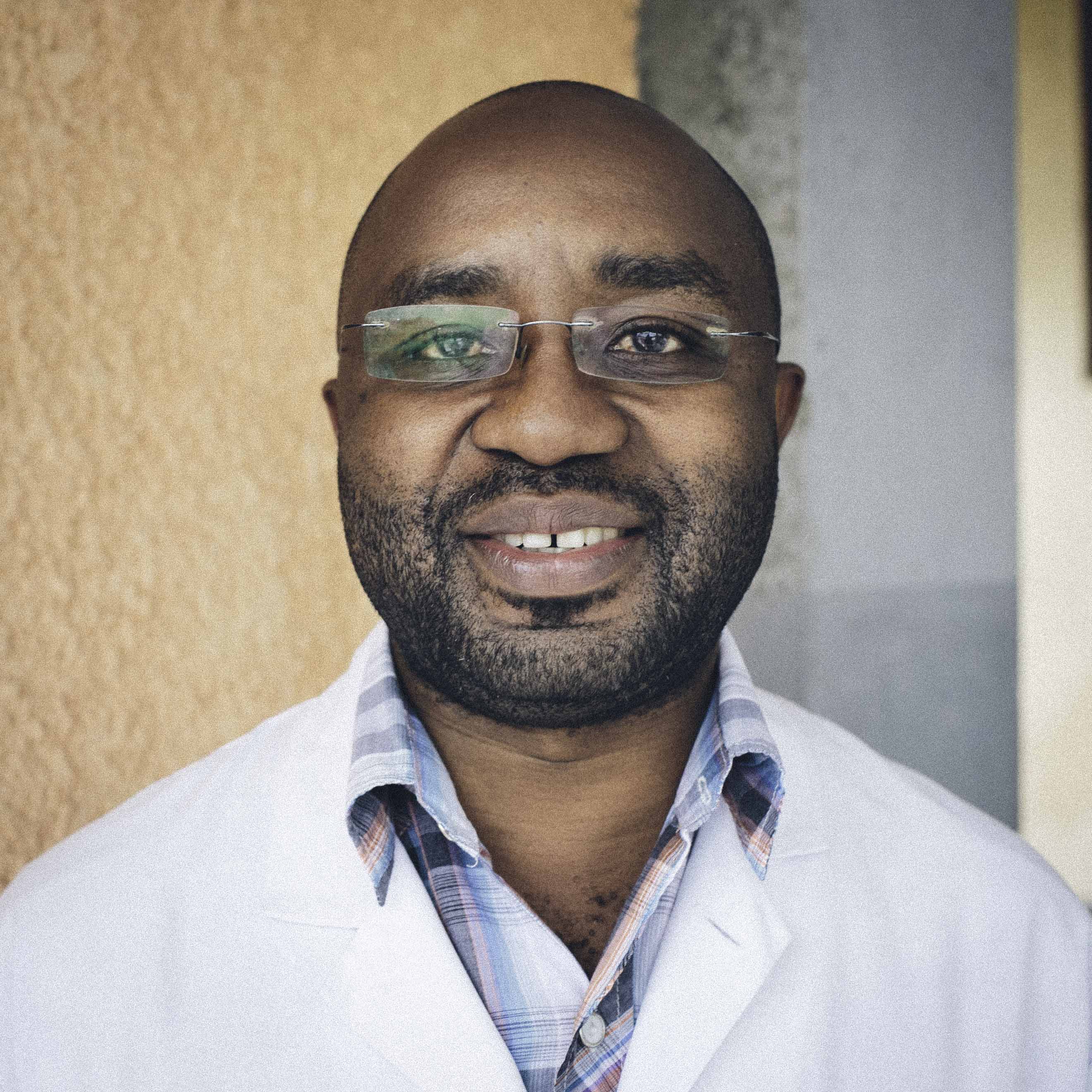 Muhindo MUKANDIRWA DEOGRATIAS
Muhindo MUKANDIRWA DEOGRATIAS

Dr. Deo has been practicing medicine for the last 12 years. In fact, for the last three years, he has been part of HEAL Africa’s medical staff. Motivated to understand a patient holistically, he recently made the decision to specialize in Family Medicine. “I’ve known HEAL Africa for many years, since studying in Goma. I saw their work and wanted to be a part of their team. Personally, I want to be the best example for my children. I want to push them to be the people they can be in their lives. In my work, I don’t want to disappoint my patients. I want to give them the best treatment possible by giving them the most accurate diagnosis.” Deo’s path to becoming a doctor began when he was a child. As a child dealing with chronic bronchitis and asthma, he saw a lot of doctors. “There was one doctor I really liked and I wanted to be just like him. I liked the way he treated me; he was always joking with me to cheer me up. If I was not in medicine I would become a lawyer. I am grateful that in this work I feel that I am gaining something. One day I would like to open my own family medicine clinic and help more people.”
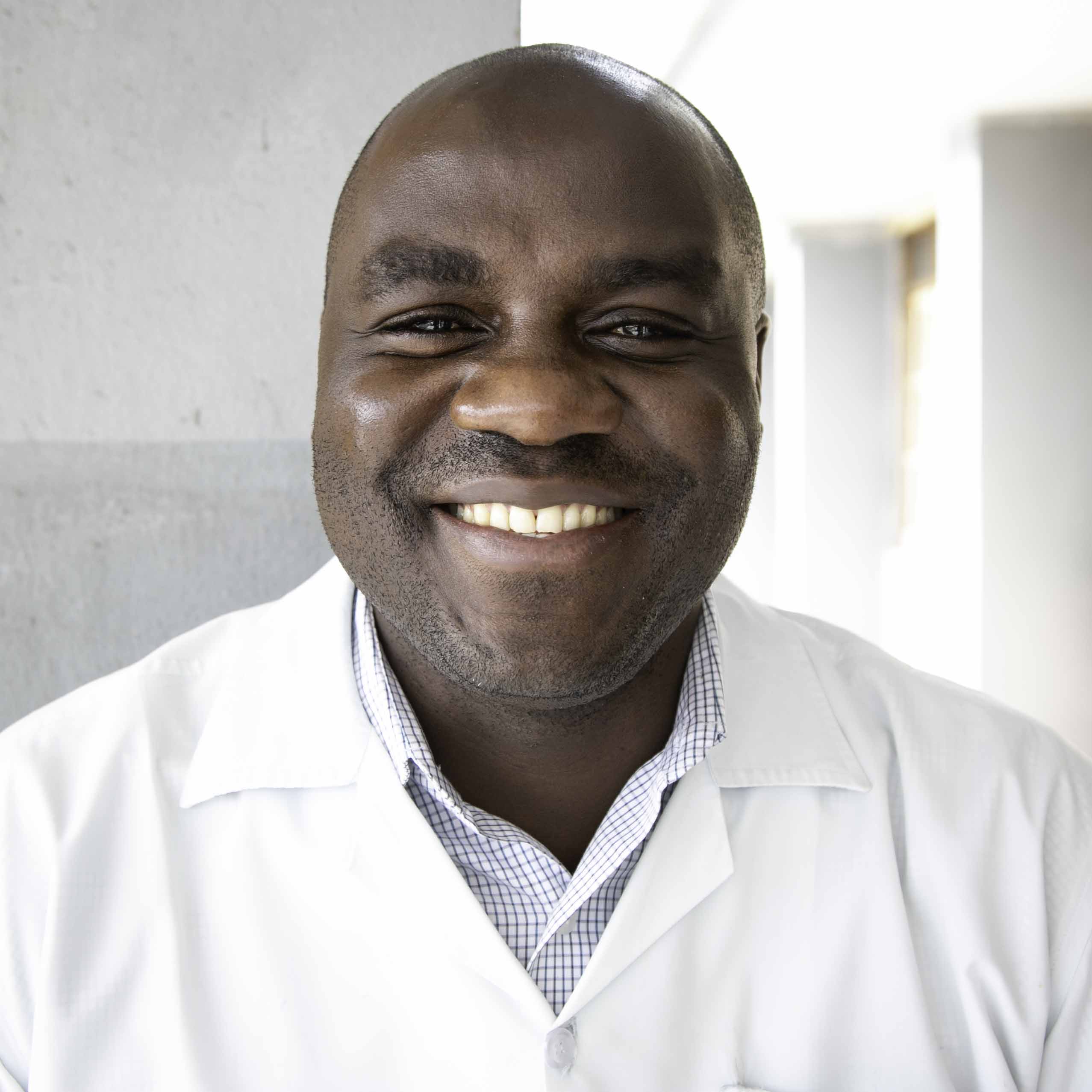 Deyem KASEREKA KAHUKO
Deyem KASEREKA KAHUKO

Dr. Kahuko was born and raised in Butembo, north of Goma, known for its commercial activities. He came to Goma with his wife and two daughters to train in surgery at HEAL Africa. “I never entertained any other profession. [Being a doctor] has always been my vision. Even before I started my studies. I always liked to take care of friends and family who are sick. I also saw how other doctors were able to change lives.” If he could be the best anything he would like to be the best singer in the world. But if he could dedicate his life solving one problem, it would be complications in maternal health, especially, during delivery. The oldest item still in his possession is a childhood watch from 30 years ago.
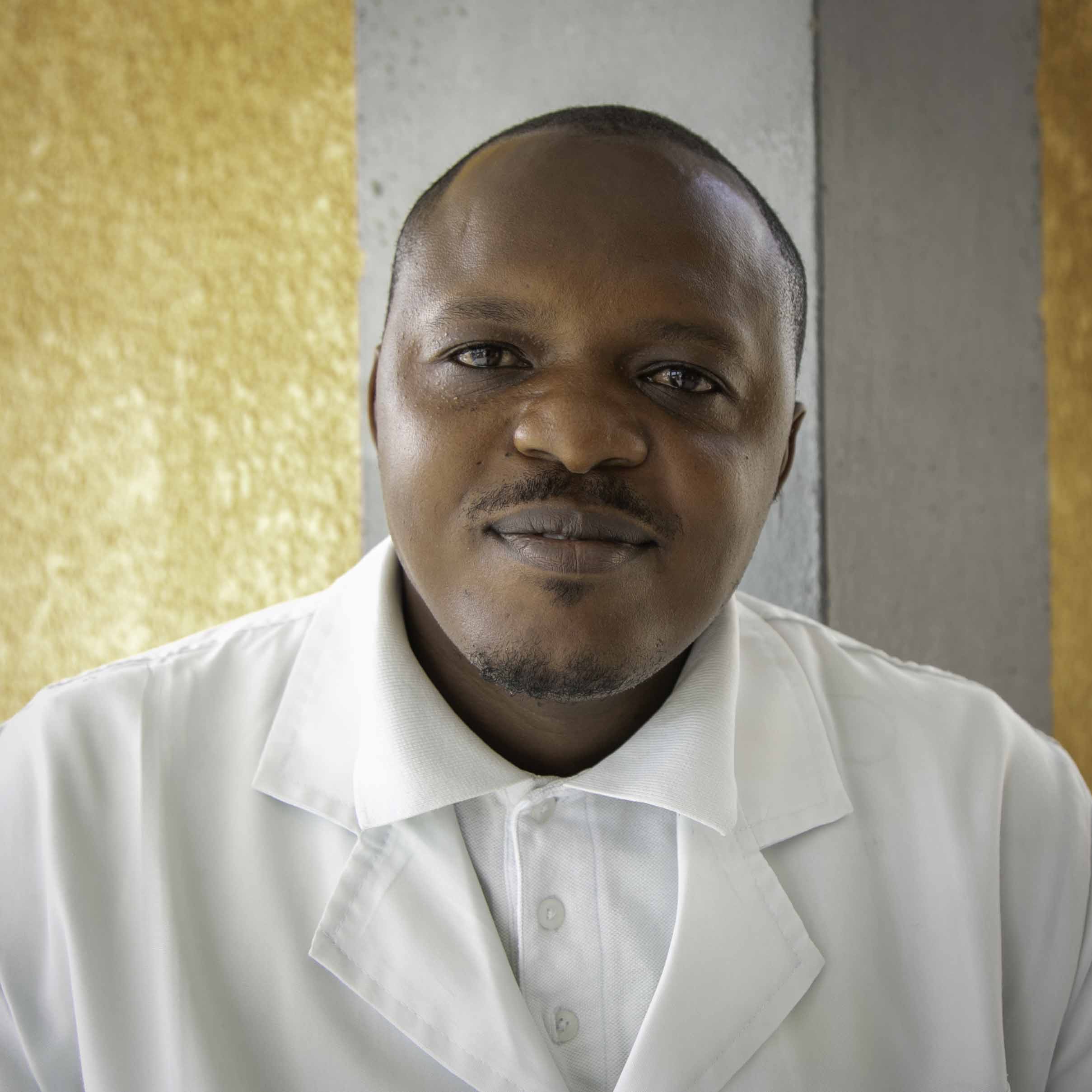 Luc KINYOMA
Luc KINYOMA

In 2014 a team of orthopedic doctors from HEAL Africa came to do an outreach in the hospital which Dr. Luc was working. He spoke to them eagerly, wanting to find out how he could improve his surgical skills. They told him about HEAL Africa and the trainings offered. The following year he came to Goma thinking he would go into Family Medicine, until the staff saw him excel in surgery. That was when he shifted his focus to surgery. Other visiting doctors recognized his skill and helped me get into the program. In 2016, he became part of the first team to train in surgery at HEAL Africa. “I decided to become a doctor when I was 21, after watching my father suffer from a benign tumor. It was very hard on my family. That same year I enrolled in medical school. I want to dedicate my life improving the quality of health for people, especially in my village, because I know it is a big problem. If I have the possibility of achieving this I would be satisfied.” Dr. Luc is also a musician and likes to play the drums and the guitar when he is not working or spending time with his wife two kids.
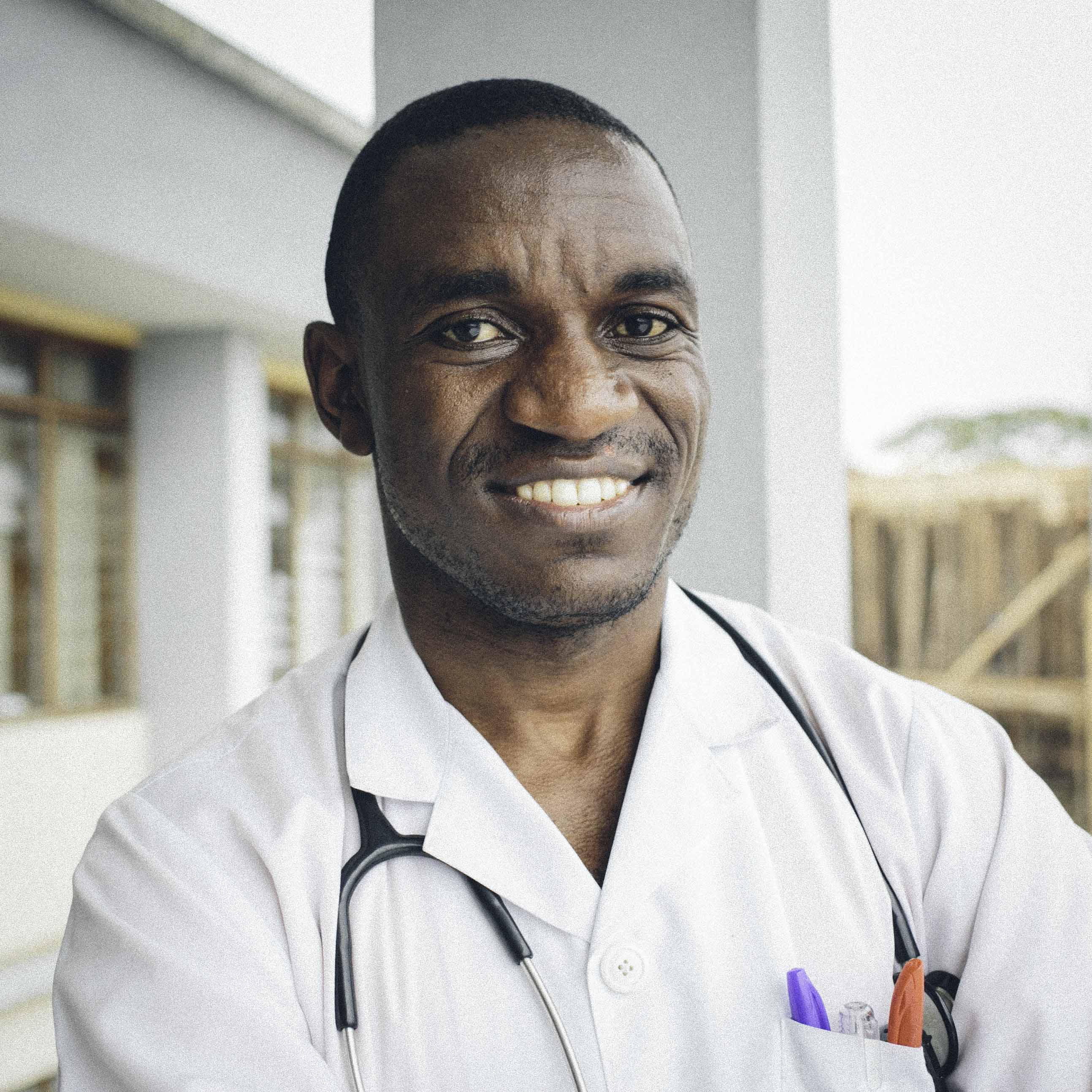 Chrispin MUHINDO LWANZO
Chrispin MUHINDO LWANZO

If he was not practicing medicine, Dr Lwanzo would become a priest or pastor or in some type of humanitarian job. But he chose to become a doctor because he saw that it was doctors who were able to resolve health problems in the community. He also saw that it could support his family. His mother’s example has kept Dr. Lwanzo accountable to honesty and hard work. “I saw my mother take on difficult things after my father left us when I was ten years old. I am one of five children from a polygamous family. My mother did everything—she took on small jobs and eventually started selling clothes. She was able to send all of us to school.” Dr. Lwanzo is motivated by challenges and aspires to be the kind of leader who is able to make changes in the lives of people in DRC. If he could dedicate his life to solving one problem, it would be preventing complications related to maternal death. He would love to specialize in gynecology and psychiatry. For now he is excited to be able to help people and contribute to the scientific community with the knowledge he gains about diseases and other problems that plague the community.
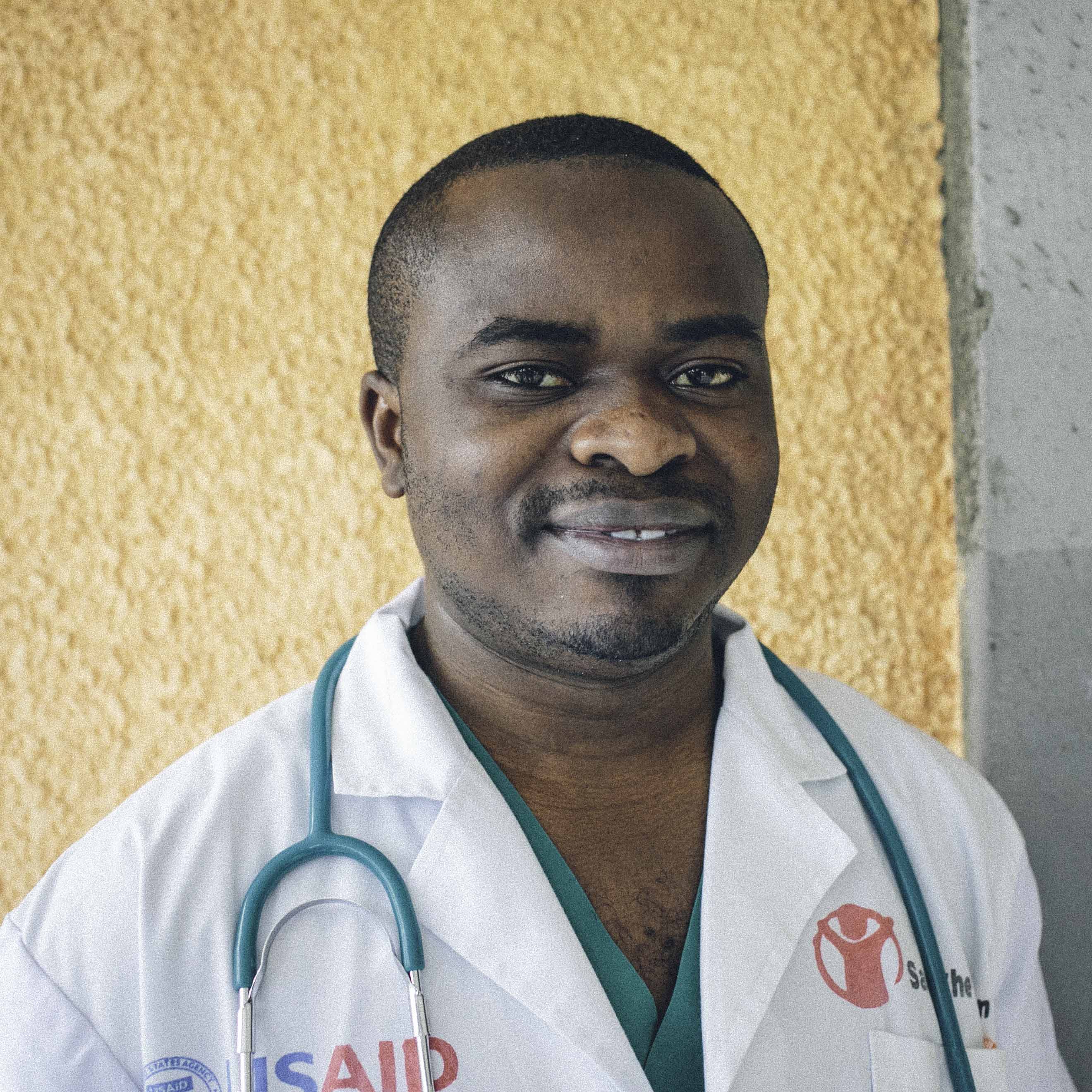 James MUNGUIKO MACALI
James MUNGUIKO MACALI

“People risk their lives to come to Congo because of love, surprise me the most.” Dr. James has known about HEAL Africa for some time, and so he has seen a lot of people who surprise him, like the volunteers who come to give their time. Inspired, he wanted to join the Family Medicine program immediately, but Professor Ahuka, formerly part of HEAL Africa, advised that he work in a rural setting first, as part of the entrance criteria. “His teaching style and his knowledge of medicine was very beneficial to me. When he taught us, he would tell us stories when he worked in rural areas in bad situations and the lack of peace in those areas. In bad conditions, he could improve people’s health. He used to say that ‘if doctors don’t go to rural areas, who will help those people? And if doctors refuse to help those people, they would die.’ He said that working in a rural area does not mean the end of your career. Dr. Ahuka continued his studies and became a professor. His model had an impact for me in my life. Because of him, I want to work in rural areas. I also want to teach others in medicine.” If he could master one skill right now, Dr. James would like to be a great painter.
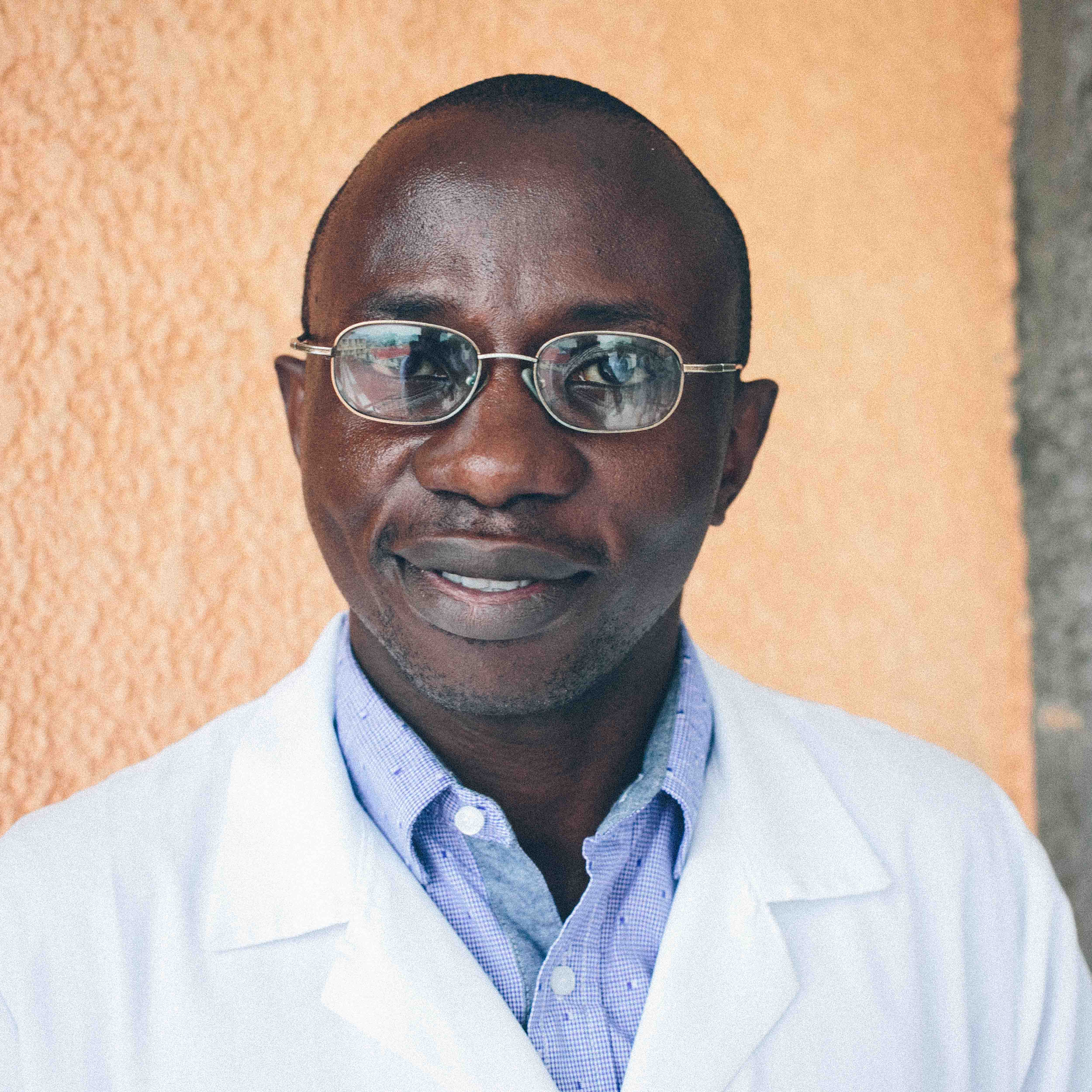 Gaspard MAKAMBO MOHILO
Gaspard MAKAMBO MOHILO

“To become a doctor has been a passion for me since I was young. My brother died from some that could have been prevented. How could I lose my brother to such a thing? I want to become a physician to save lives.” But if he were not a doctor, he would be a mechanical engineer. Gaspard had been rotating between three community hospitals for the last five years. He was looking for ways to improve, to be able to do more for his patients. HEAL Africa happened to be conducting a fistula outreach in one of the community hospitals where he was working, and learned about the training in Family Medicine.
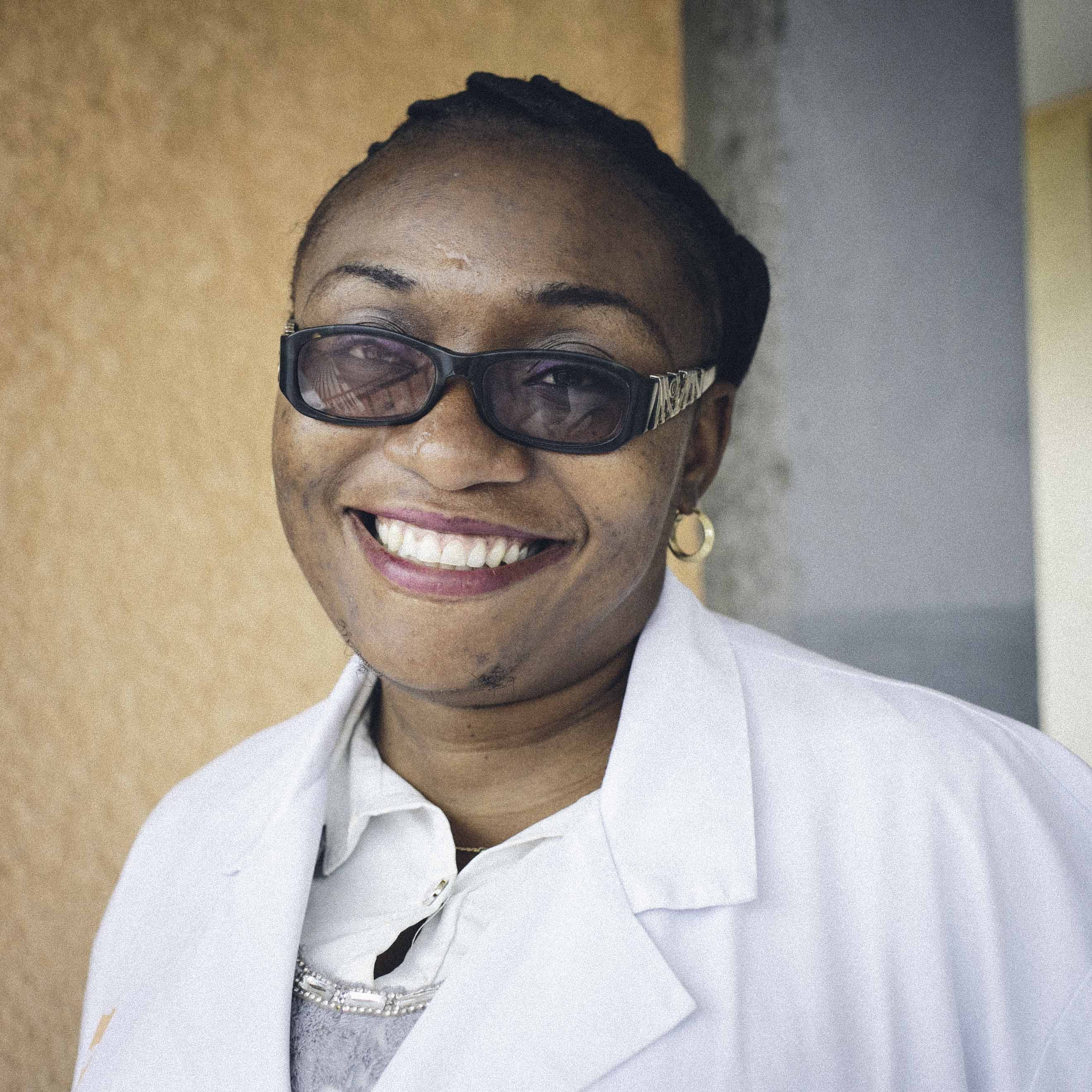 Francine MBONGA MOSEKA
Francine MBONGA MOSEKA

“Life is very difficult here. I know it is a competition. So when I wake up, I have to tell myself that I am a winner. I envision myself as a winner, that I was born to win.” Francine is as determined and competitive as anyone out there. But one thing that always surprises her about people is how heartless some people can become in life’s competition. Becoming a doctor has been her dream since she was five years old—she refused to consider any other career path. She spent time practicing in a military hospital and working in public health. But after watching Dr. Masoda work, she was determined to work in Family Medicine. Francine is goal-oriented but has a wide variety of interests. “I would love to be the best singer in the world. I would also like to solve the problem of nutrition, of food insecurity. And to master the English language.” Her mother’s cookbook from 2009 is the oldest thing she owns in the house. When she is not working, she loves to watch her children play, to cook, and read. As a perfectionist, she admits she can be short-tempered. But she is grateful to have family members like her parents, who continue to set an example on managing difficult situations, kindness, hard work—and great cooking.
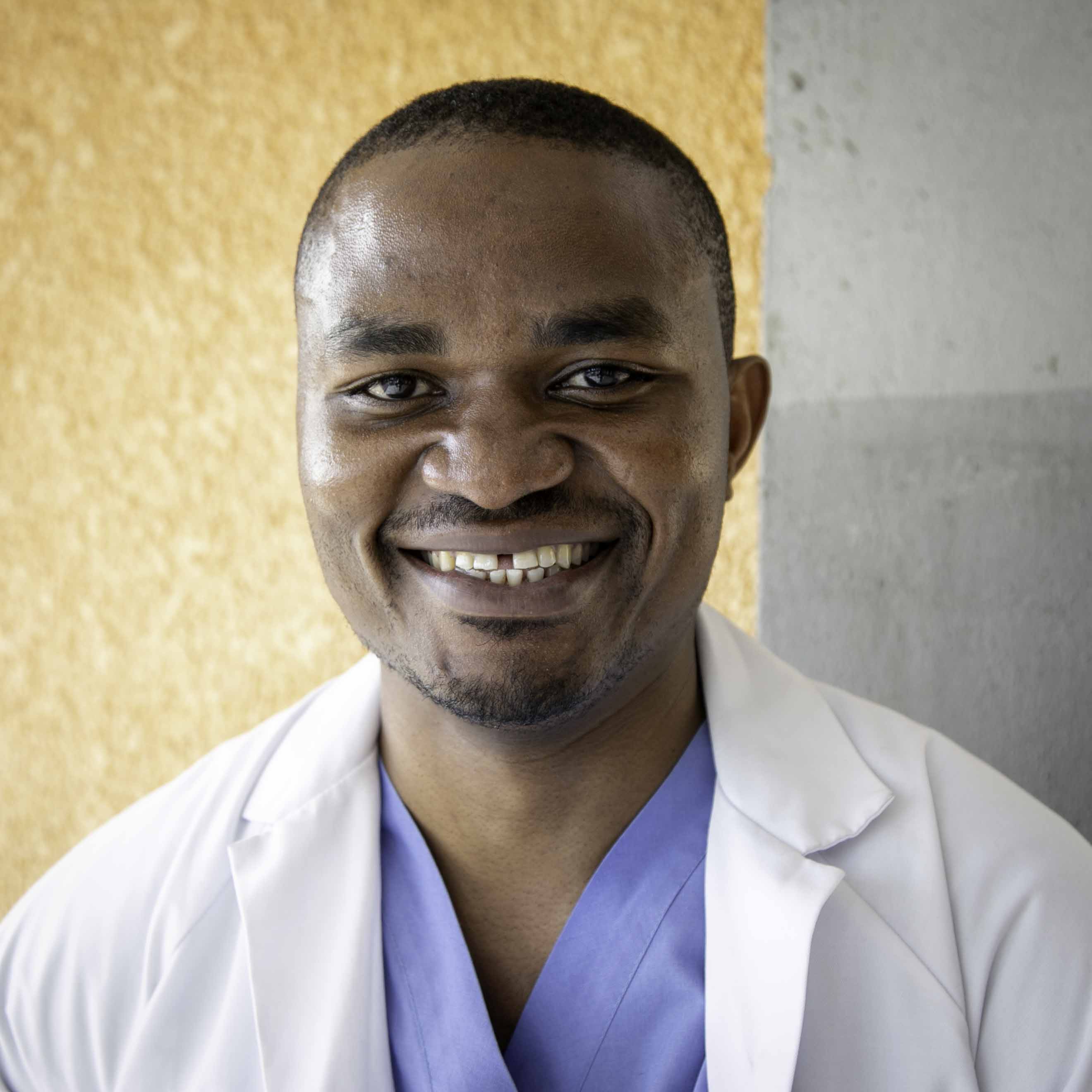 Justin TSANDIRAKI
Justin TSANDIRAKI

“I want to be a great surgeon. Then I want to help young people love surgery. There is much need in the community to do this work. This will help our population.” Dr. Justin heard about HEAL Africa while he was a student in Goma. Every Friday, he would attend the lectures provided by MONUSCO. He also interpreted for the AusHEAL teams. He decided to become a doctor because, “I see a lot of sick people. Being a doctor would let me help people suffering from illnesses.” He is also thankful for the guidance and developed love of general surgery, from Dr. Ahuka, a well known practitioner and professor of medicine in eastern DRC.
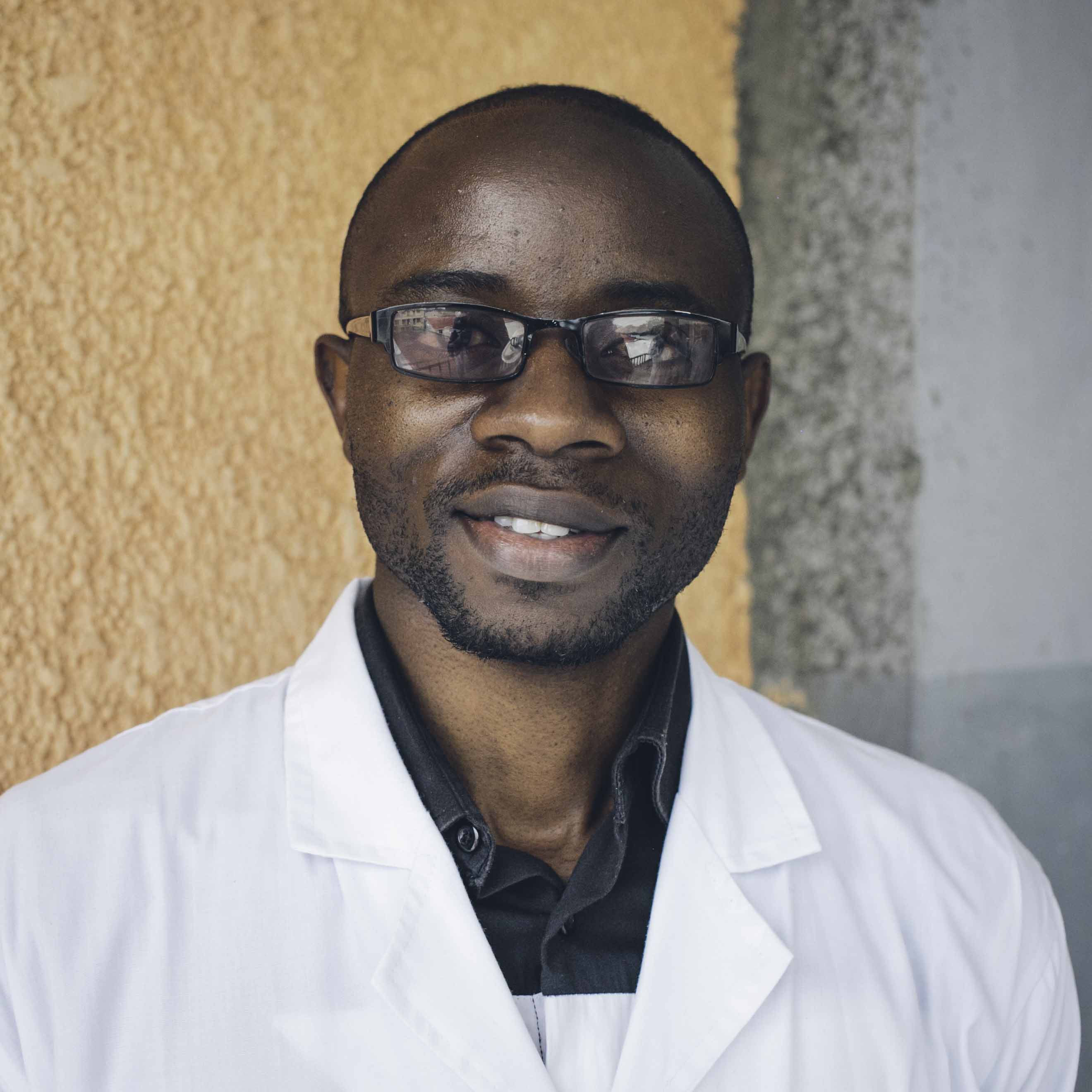 Marcel MAYALA VANGU
Marcel MAYALA VANGU

Marcel was born just across the Congolese border, in Gisenyi, Rwanda. All of his formal school trainings were done in Goma. He comes from a very athletic family, and at one point, considered pursuing soccer professionally. Instead, he decided he would become an electrician. “My dream was not to become a doctor. I was attending vocational school to become an electrician. My parents couldn’t afford to help me with university. And I wasn’t sure I could go back to school since I had been out of school for five years. But I went to the university one day to get a student card that would allow me to travel. That was when I learned that school could be paid slowly, and not all at once. My parents suggested I consider becoming a doctor.” After finishing his studies, Marcel went to work in a small private clinic in Ituri, as the only doctor. “When I arrived in Ituri, I was not a very skilled doctor. But I met the owner of the clinic who was a nurse with a lot of experience. He taught me a very interesting surgery that was very helpful in the community—how to treat a hernia. People in rural areas work very hard, doing physical labor. Hernia was very common. I had a lot cases I couldn’t manage all by myself. Even though he had much more experience, he was very respectful to me. I still call him today to thank him.” Being part of a solution to a problem is what motivates Marcel, with ethnic discrimination being at the top of his list. And because of his experience in Ituri, Marcel wants to teach medicine in Congo one day.
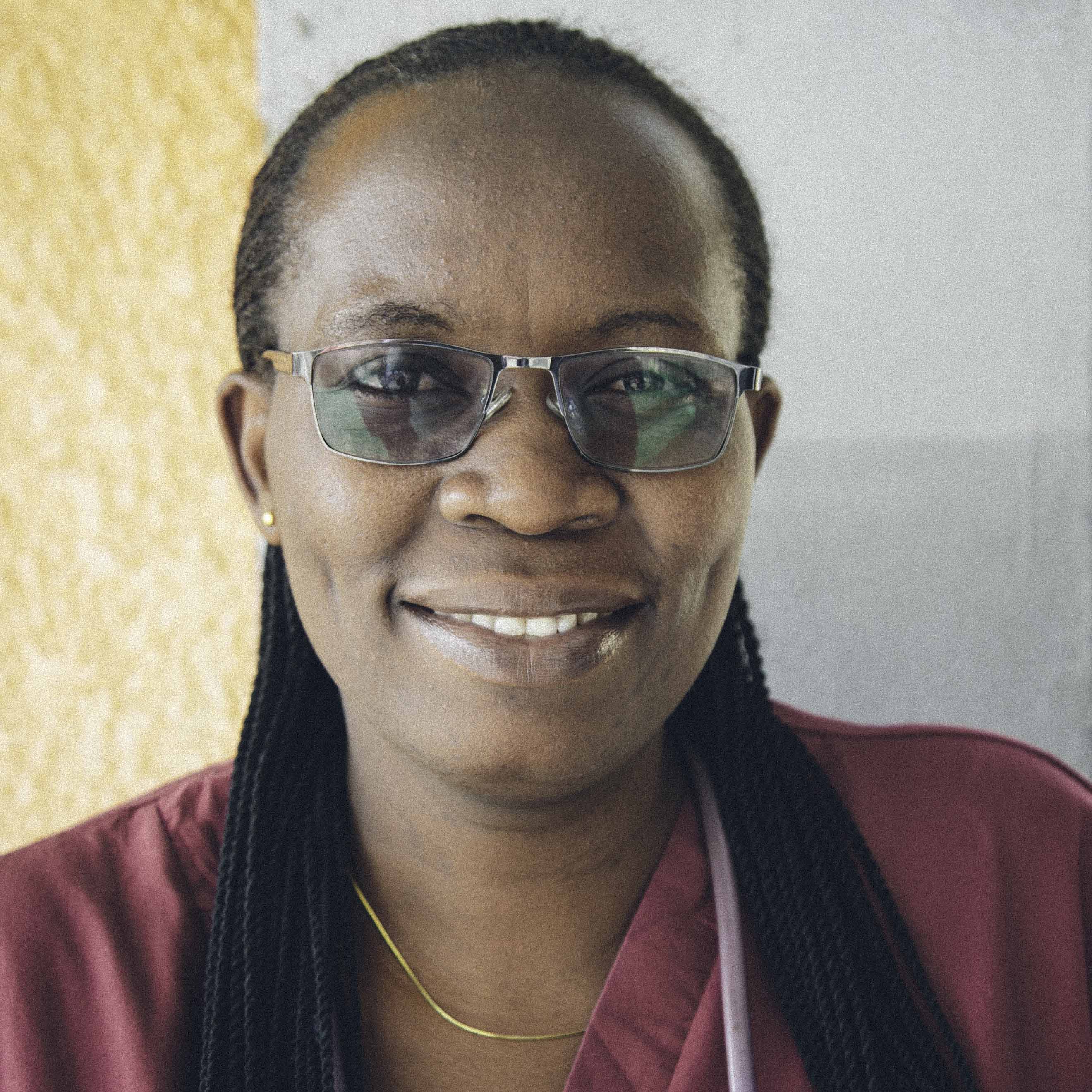 Consolate POLISI ZAWADI
Consolate POLISI ZAWADI

Before coming to HEAL Africa, Dr. Polisi spent 5 years practicing in Rwanda and two years working in a rural village, situated between Goma and Butembo. “I’m so grateful for this opportunity to train. My family is not rich, so I would not be able to do this. I want to serve. Surgery is hard and requires many sacrifices, but if I can do something to relieve someone’s pain, it motivates me.” Polisi has dreamed of becoming a doctor since she was a child—although she can’t recall why—she just knew. It was not until she began working in small hospitals, surrounded by insecurity, that she questioned what she was doing. “But I really liked the job.” She also likes to sing and wants to be a great singer, but views singing every day as a duty. As a married, Congolese woman, she struggles with many expectations. Faced with many responsibilities between her career, church, and family, finding balance has become an important goal. But helping other women with their health problems is at the forefront. “A lot of women are struggling with breast diseases, so I would like to help women solve this problem, especially in Africa. It’s a really big problem. Most of the time in the village, the nurses recognize things in the late stage. Sometimes women will find a lump and they will go to see a local healer in traditional medicine and make it worse.”
MEDICAL RESEARCH & STUDY
Research undergirds medical advancement in diagnosis and treatment. HEAL Africa adheres to the principle that all interventions should be closely monitored for their outcomes and effectiveness. In support of this, all residents complete several supervised research projects over the course of their training. Continuing Medical Education (CME) conferences hosted by the hospital feature segments of research germane to service in this region. And many of the organization’s staff members also engage in research and publish while practicing their discipline.
HEAL Africa Training Team
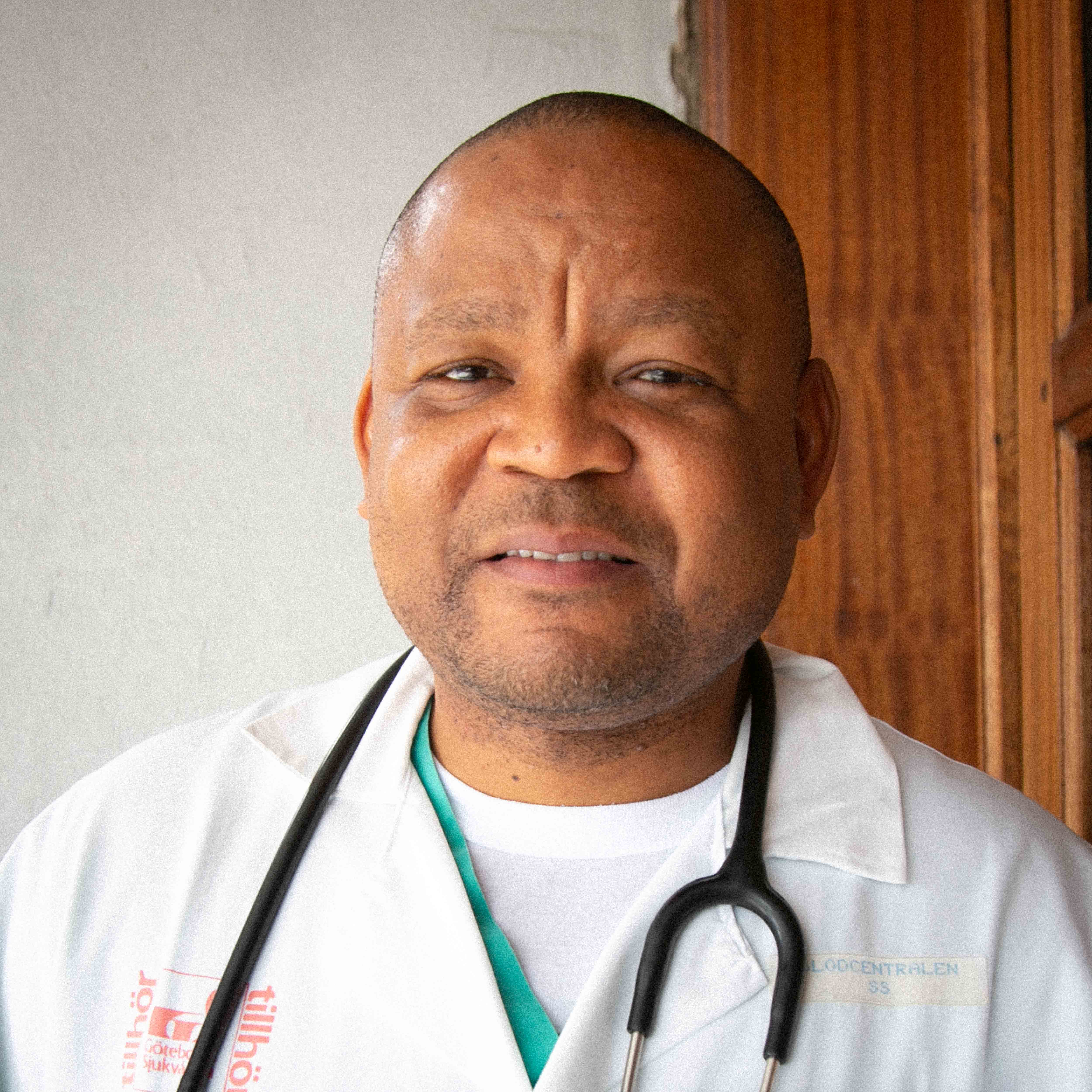 Dr. Muller MUNDENGA
Dr. Muller MUNDENGA

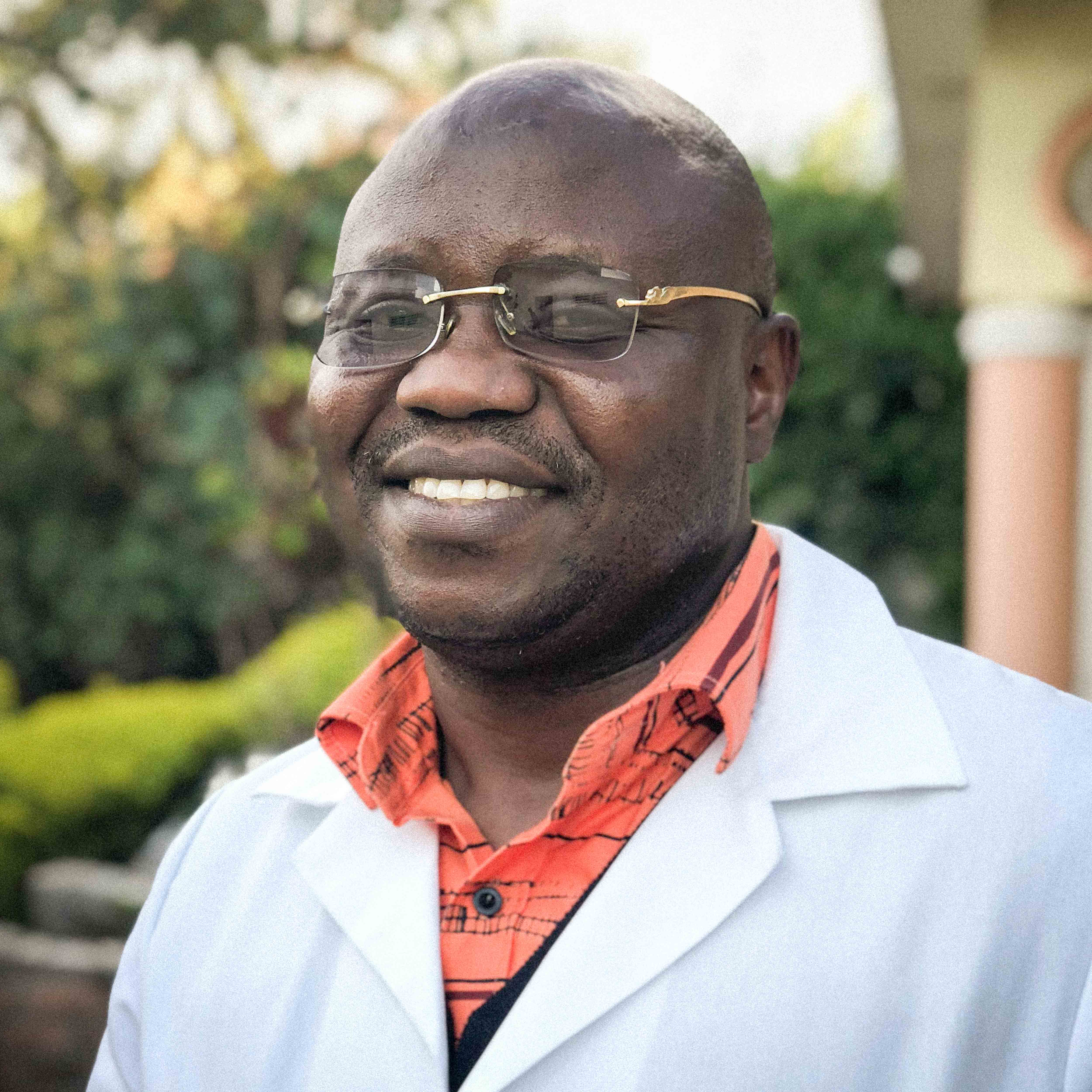 Dr. Medard KAKULE KABUYAYA
Dr. Medard KAKULE KABUYAYA

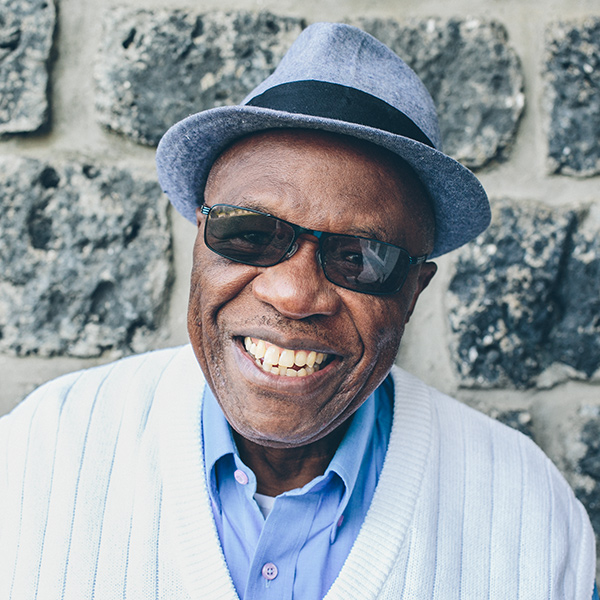 Dr. Jonathan KM LUSI
Dr. Jonathan KM LUSI

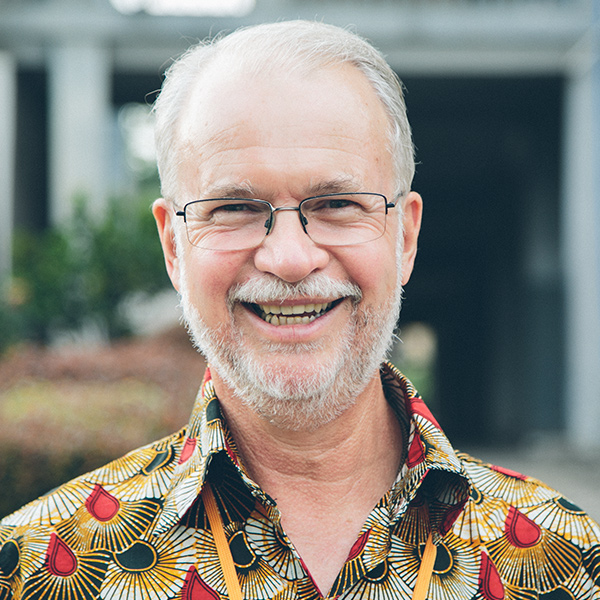 Dr. Neil Wetzig
Dr. Neil Wetzig


